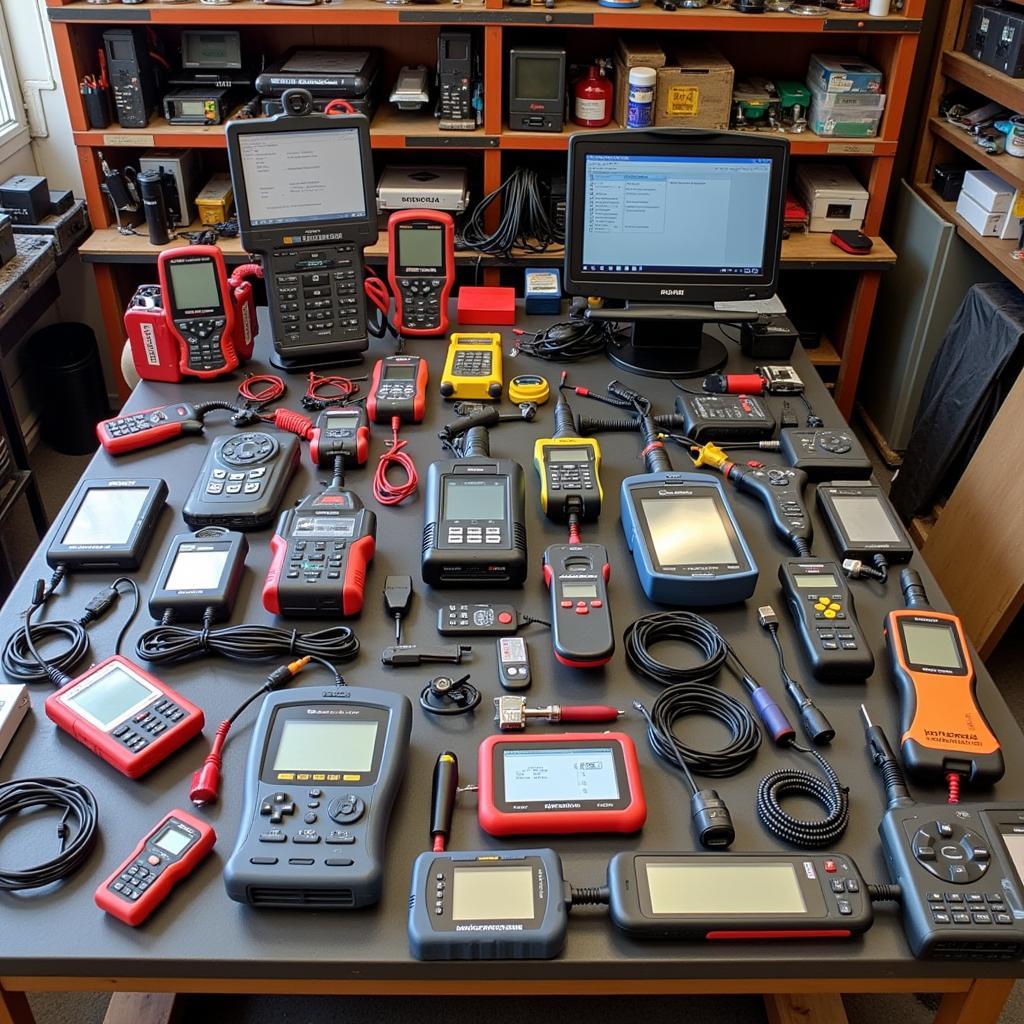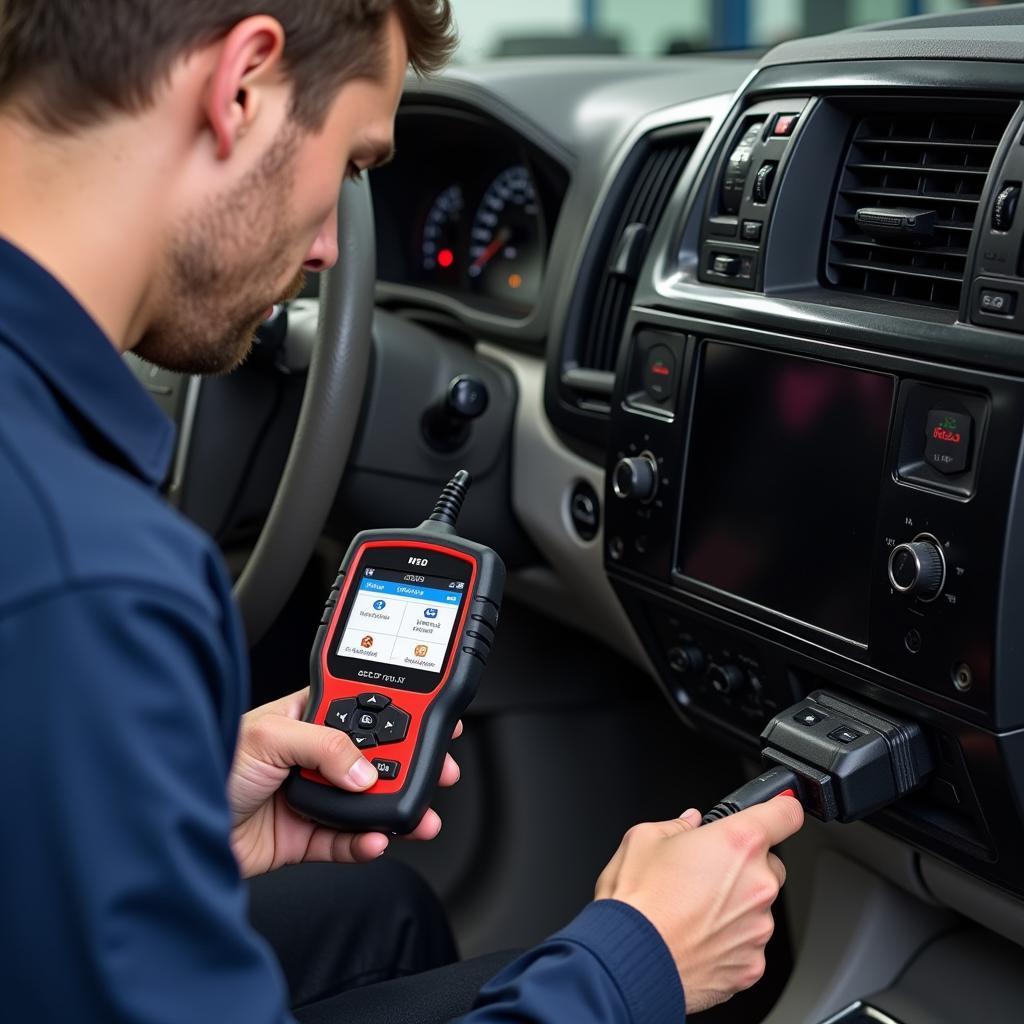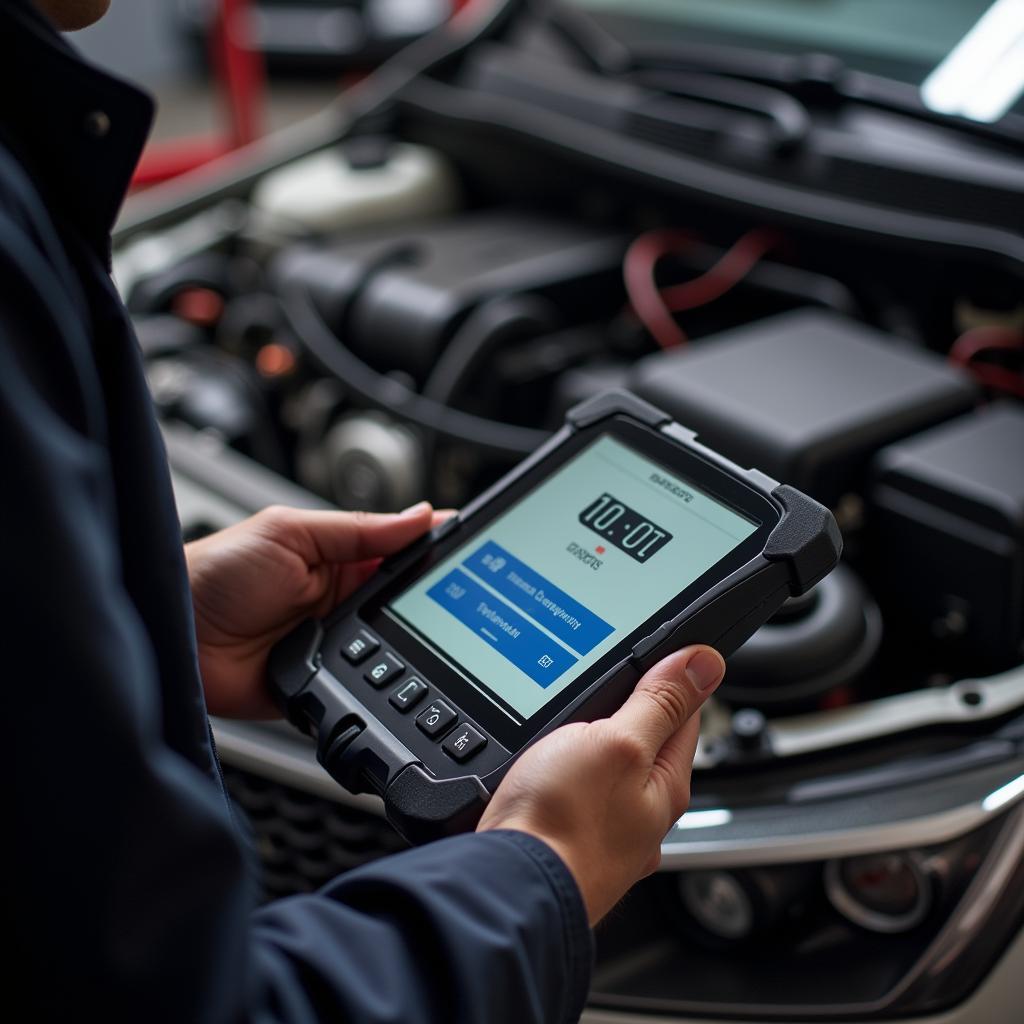Finding the right car diagnostic tool can feel like navigating a maze, especially with so many options available at various price points. Whether you’re a DIY enthusiast looking to troubleshoot your vehicle or a professional mechanic seeking advanced features, this comprehensive review will guide you through the essential factors to consider when choosing a generic car diagnostic tool.
Understanding Your Needs and Budget
Before diving into the world of generic car diagnostic tools, it’s crucial to assess your specific requirements.
-
What do you want to achieve with the tool? Are you primarily interested in reading and clearing basic engine codes, or do you require more advanced functionalities like live data streaming, component activation, and ECU programming?
-
What type of vehicles will you be working on? Ensure the tool you choose supports the make, model, and year range of your vehicles, including both OBD-II and older models.
-
What’s your budget? Generic car diagnostic tools come in a wide price range, from affordable code readers to high-end professional scanners. Determine your budget beforehand to narrow down your options.
 Generic Car Diagnostic Tools
Generic Car Diagnostic Tools
Key Features to Consider
Once you clearly understand your requirements, consider these critical features when comparing different generic car diagnostic tools:
-
Code Reading and Clearing: This is the most basic function of any diagnostic tool. Ensure the tool can read and clear both generic (P0XXX) and manufacturer-specific codes.
-
Live Data Streaming: Accessing real-time data from your vehicle’s sensors can be invaluable for diagnosing complex issues. Look for tools that offer customizable data display and graphing capabilities.
-
Component Activation: This feature allows you to activate specific components, such as injectors, solenoids, and relays, to test their functionality.
-
ECU Programming: For advanced users, some generic tools offer limited ECU programming capabilities. However, remember that ECU programming can be risky, and it’s generally best left to professionals.
-
Compatibility and Updates: Verify the tool’s compatibility with your computer’s operating system and the availability of regular software updates to ensure it stays current with the latest vehicle models.
Price Ranges and What to Expect
Generic car diagnostic tools cater to a broad spectrum of users, resulting in a wide price range:
-
Basic Code Readers (Under $50): These budget-friendly options are suitable for reading and clearing basic engine codes. However, they typically lack advanced features. For a reliable code reader, check out the KW808 Car Diagnostic Code Reader Review.
-
Mid-Range Scanners ($50 – $300): This category offers a good balance between affordability and functionality. You can find scanners with live data streaming, component activation, and support for multiple vehicle protocols.
-
High-End Professional Scanners ($300 and above): These tools provide comprehensive diagnostic capabilities, including advanced features like ECU programming, bi-directional controls, and extensive vehicle coverage. The U480 car auto diagnostic scanner reviews offer an example of a powerful tool in this category.
 Car Diagnostic Tool in Action
Car Diagnostic Tool in Action
“When choosing a diagnostic tool, it’s important to consider the future. Opting for a tool with a broader range of features, even if you don’t need them currently, can save you money and hassle down the line.” – John Miller, Senior Automotive Technician
Top Considerations Before Purchasing
-
User Friendliness: The tool should have an intuitive interface and easy-to-navigate menus.
-
Durability and Build Quality: Choose a tool that’s built to withstand the rigors of a workshop environment.
-
Technical Support and Warranty: Ensure the manufacturer offers reliable technical support and a reasonable warranty period.
Conclusion
Choosing the right generic car diagnostic tool can empower you to take control of your vehicle’s maintenance and save on costly repairs. By carefully assessing your needs, understanding the essential features, and setting a realistic budget, you can find the perfect tool to meet your diagnostic requirements.
Frequently Asked Questions
1. Will a generic car diagnostic tool work on all car makes and models?
While most generic tools support a wide range of vehicles, it’s crucial to check the manufacturer’s compatibility list to ensure it covers your specific car make, model, and year.
2. Can I use a generic car diagnostic tool to program my car keys?
Key programming capabilities vary significantly between different diagnostic tools. Some high-end scanners may offer limited key programming functions, while others might not. Always refer to the tool’s documentation for its specific capabilities. For in-depth information on car diagnostic computers, explore our car diagnostic computer reviews.
3. Are there any risks associated with using a generic car diagnostic tool?
While generally safe when used correctly, certain procedures like ECU programming can be risky if performed incorrectly. If you’re uncertain about any function, consult a qualified mechanic. You can find more insights on this in our V310 car diagnostic tool reviews.
 Mechanic using Diagnostic Tablet
Mechanic using Diagnostic Tablet
Need help with choosing the right car diagnostic tool? Contact us via WhatsApp: +1(641)206-8880 or Email: [email protected] for expert advice and 24/7 customer support.

Leave a Reply